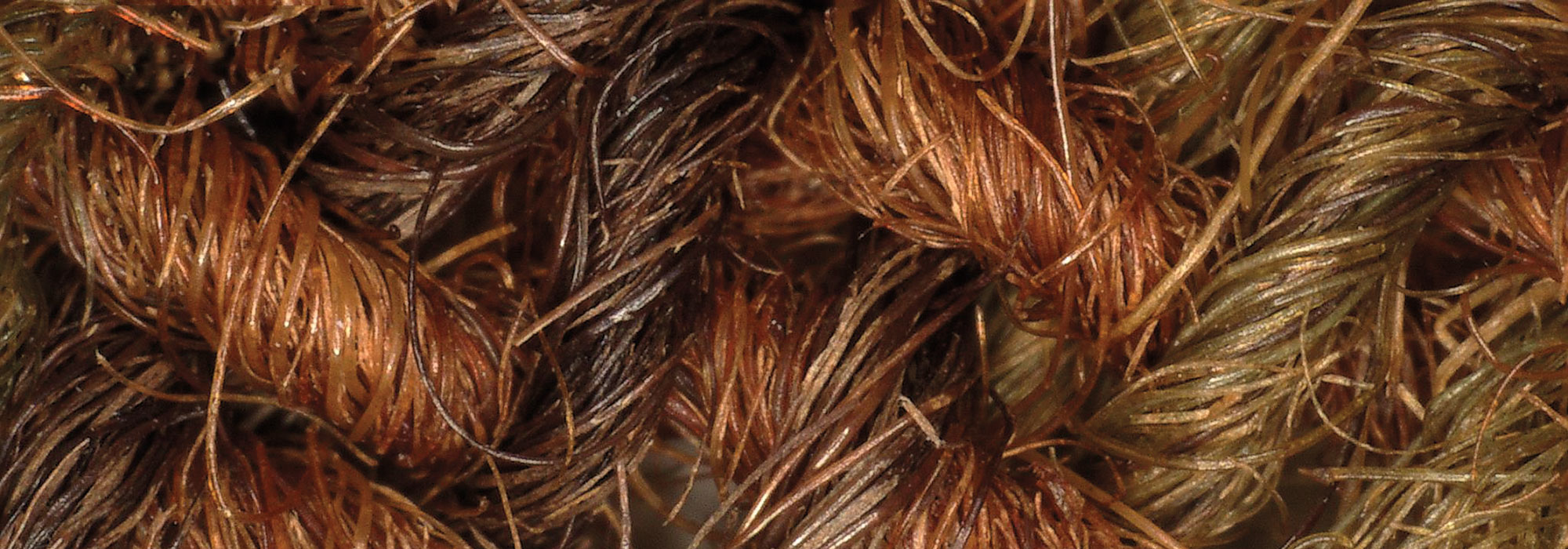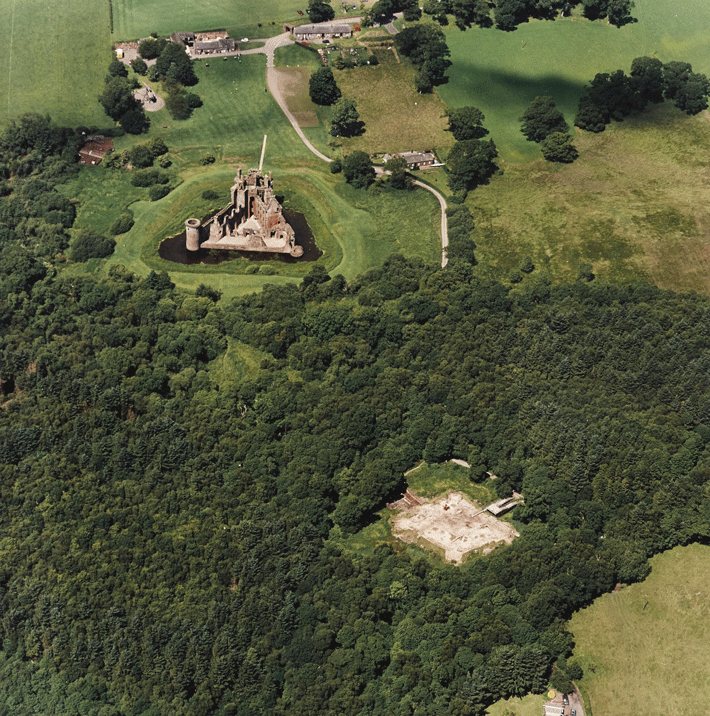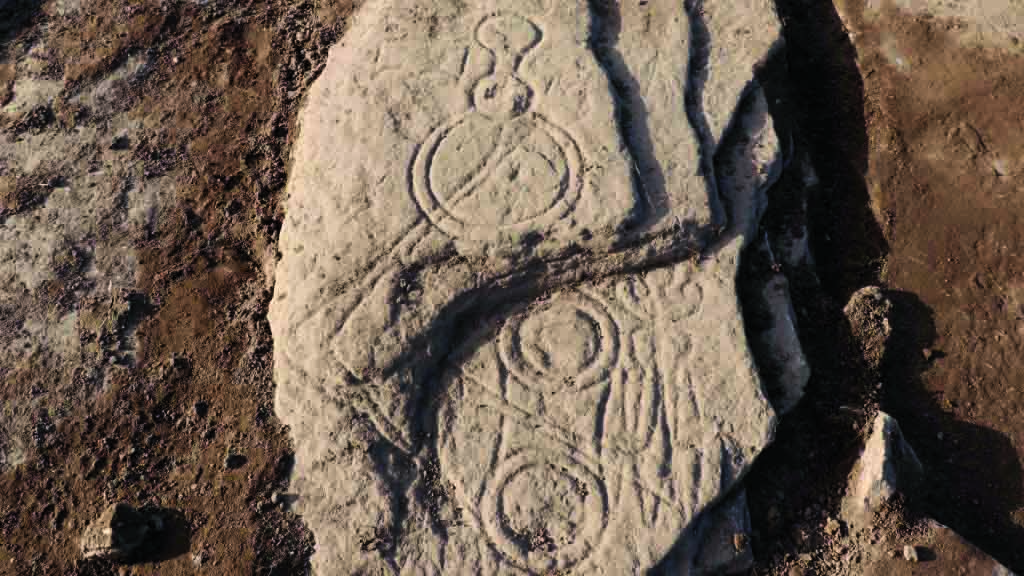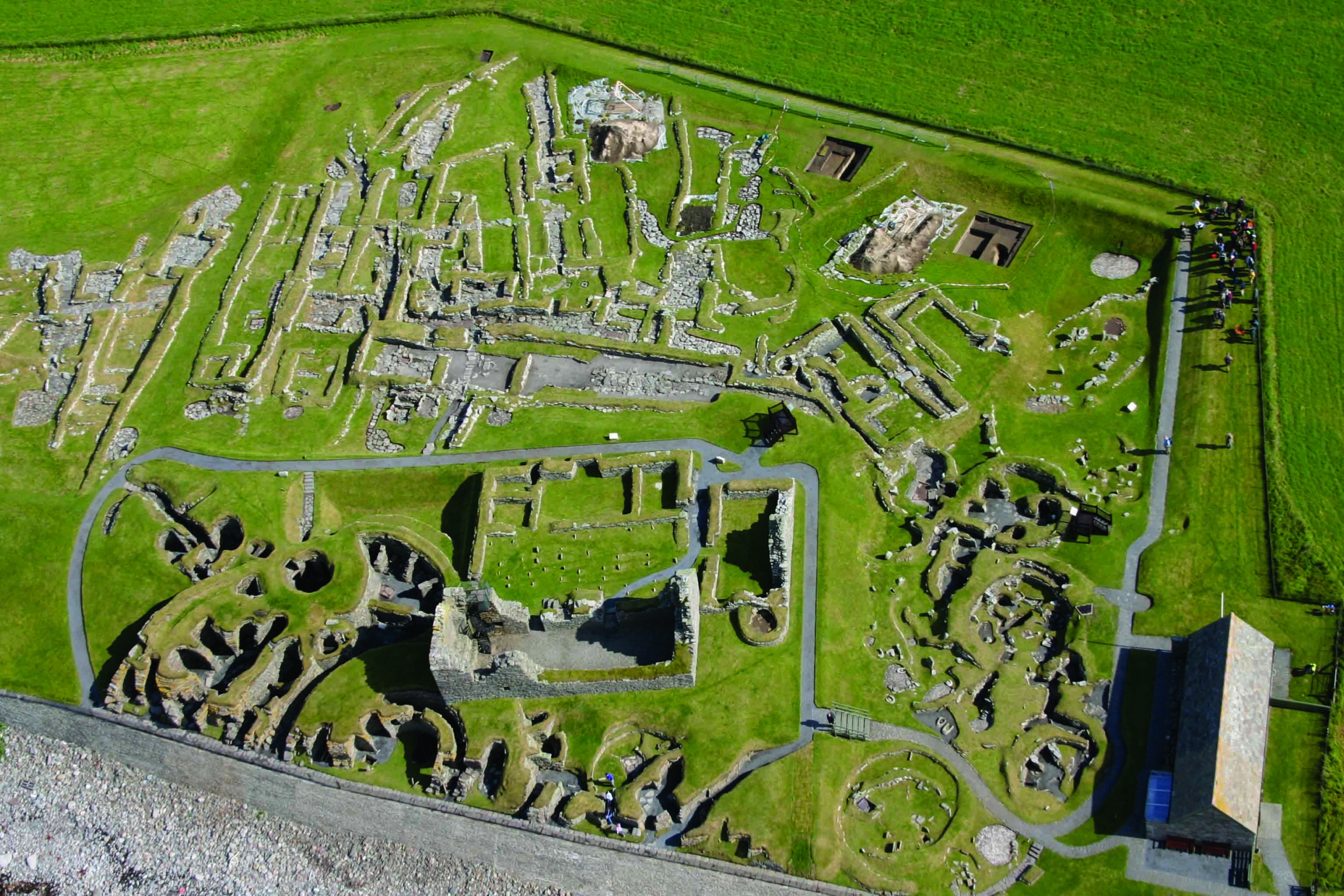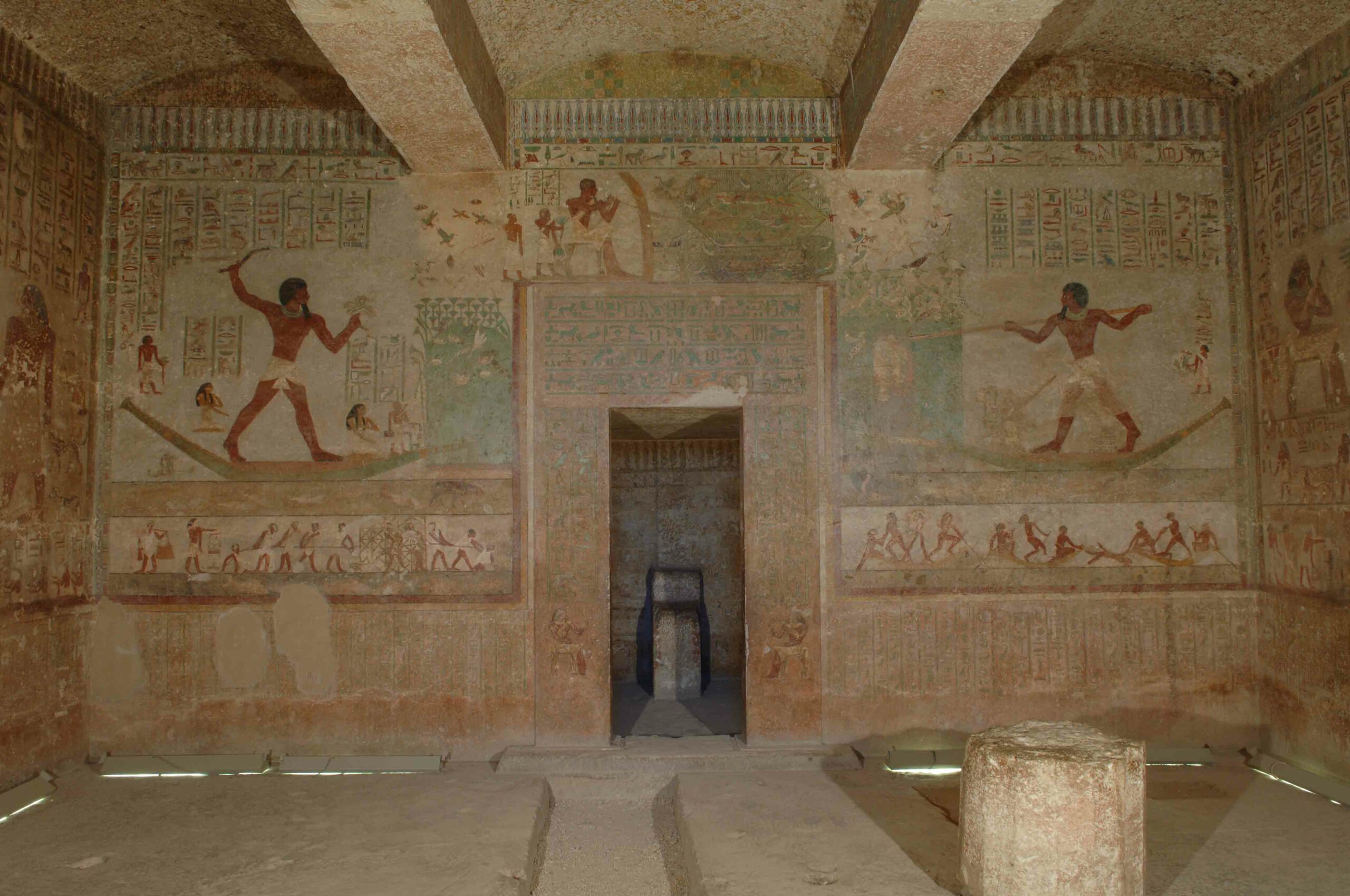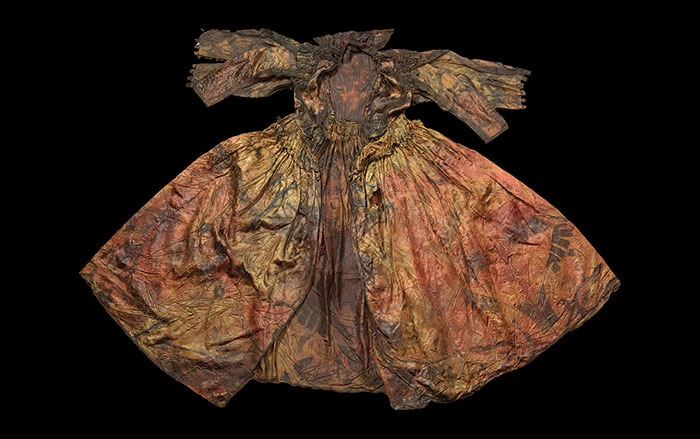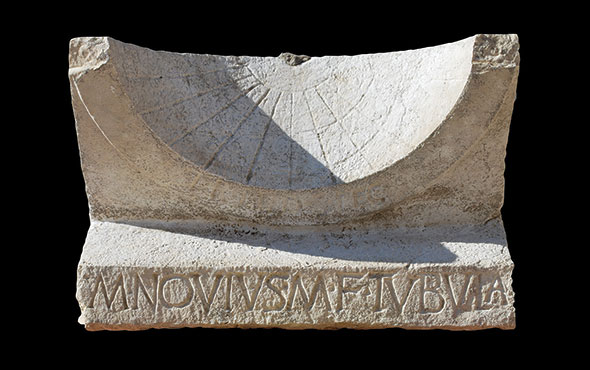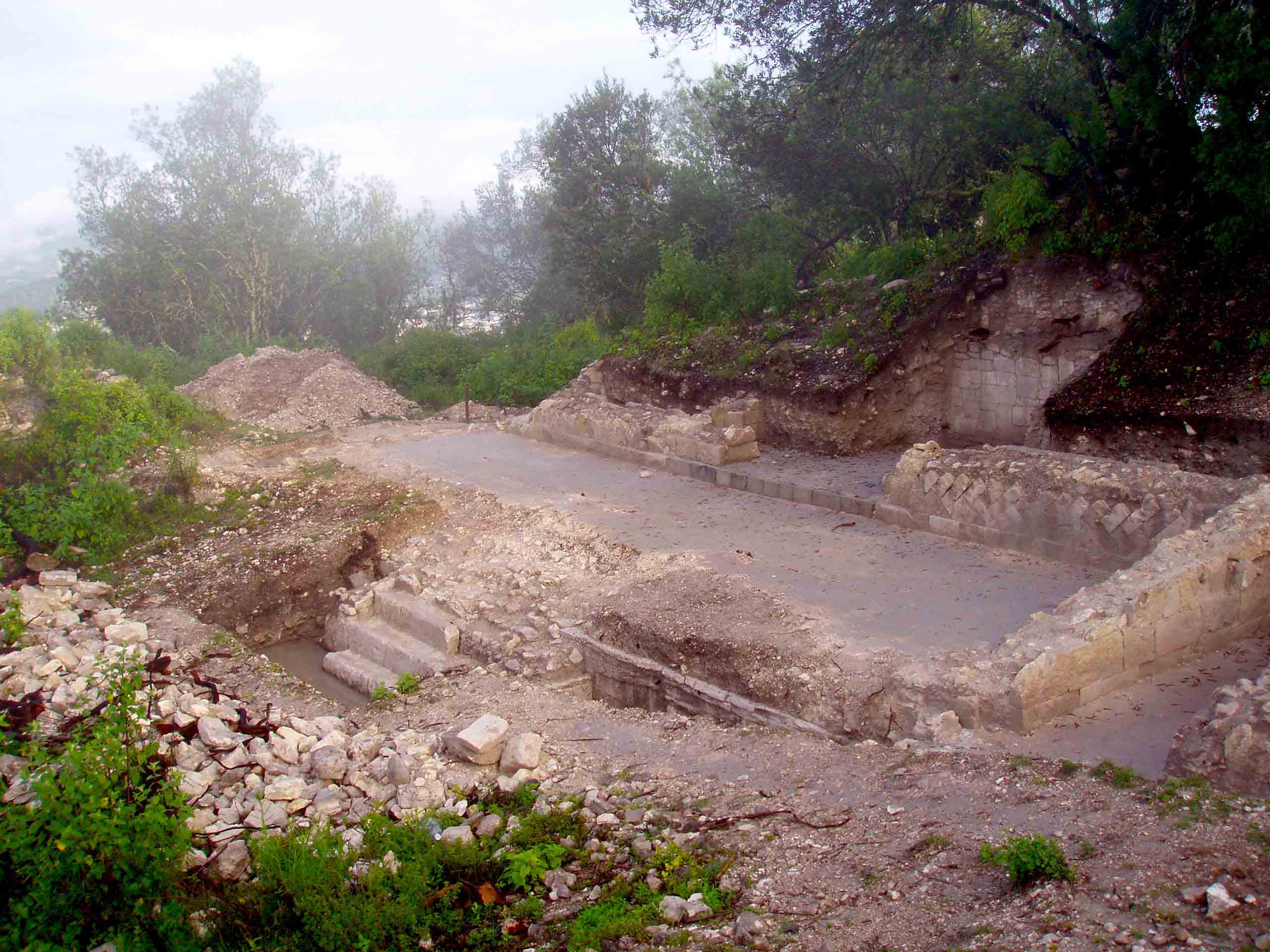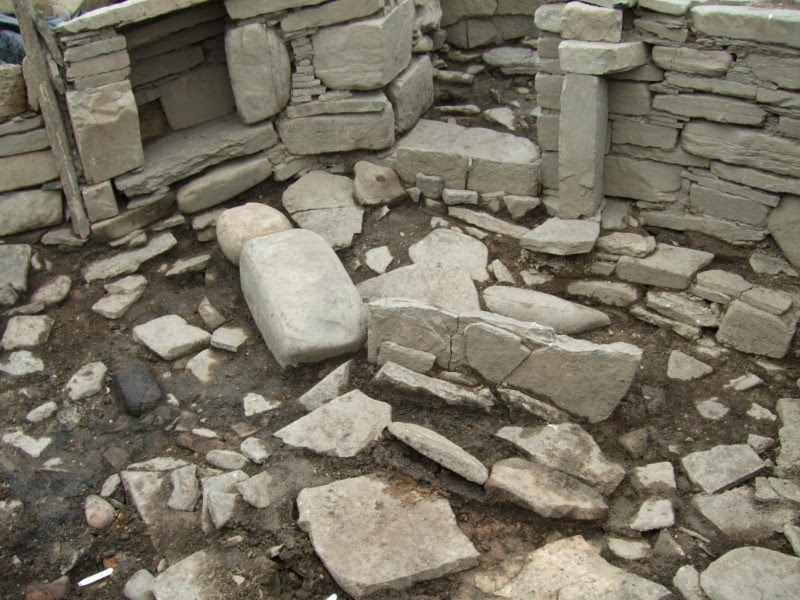
BRADFORD, ENGLAND—Archaeologists led by Stephen Dockrill and Julie Bond of the University of Bradford are excavating the site of a Pictish copper smithy dating from the sixth to ninth centuries A.D. on the Scottish island of Rousay, according to a report in The Scotsman. “The analysis of the floor enables us to say with confidence where the smith worked, next to a hearth and two stone anvils,” Dockrill said. He added that carbon marks on the larger stone anvil could be marks from the smith’s knees and hands. The amount of light in the smithy was controlled by a door from the workshop onto a curved corridor. The lack of sunlight would have allowed the smithy to assess the temperature of the metal by its color, Dockrill explained. The smithy's pivot stone, door jamb, and bar hole for the door are intact. An upright stone near the door is thought to have protected the large hearth from drafts. To read in-depth about archaeology on the Orkney Islands, go to “Neolithic Europe's Remote Heart.”


